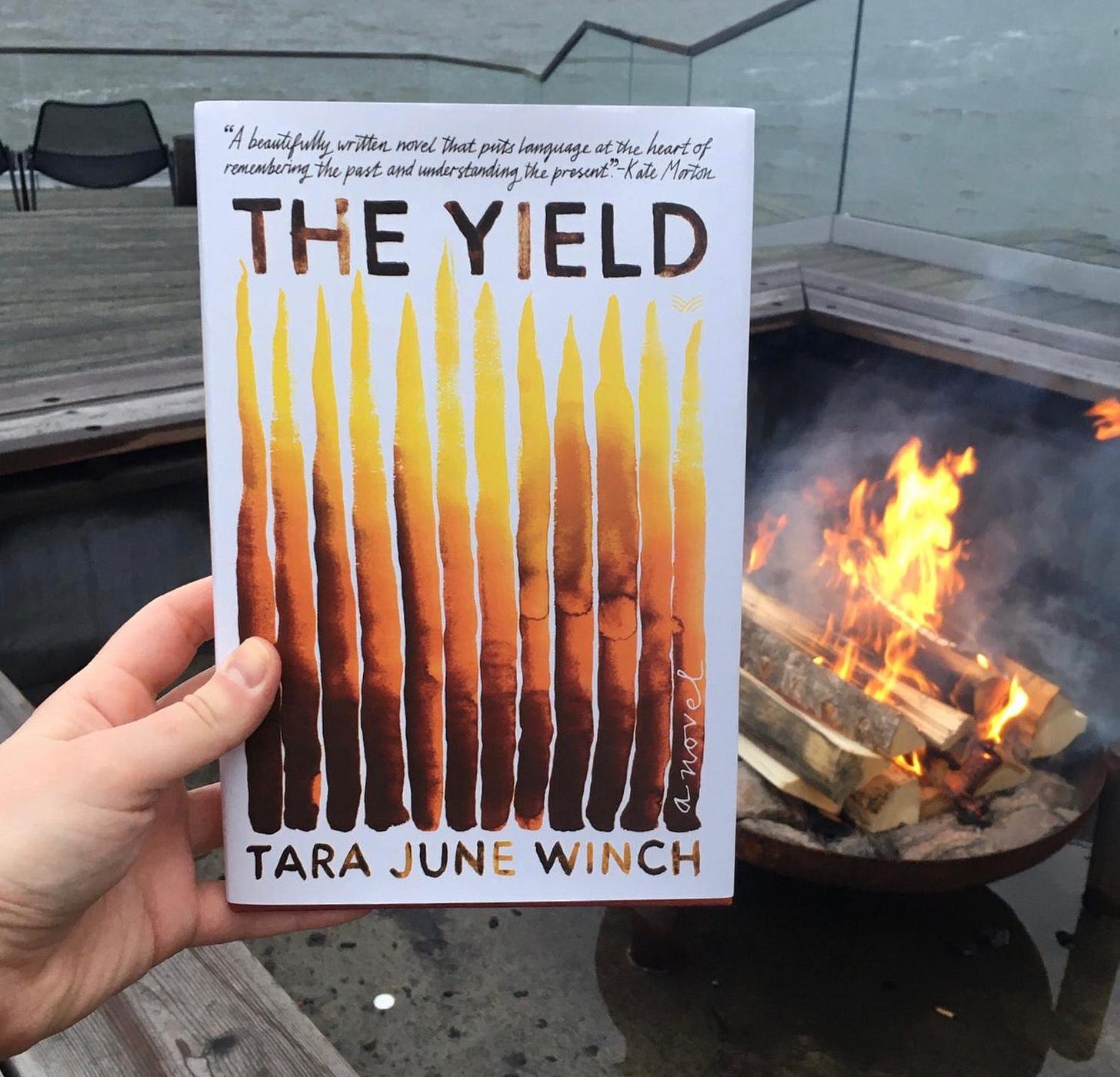Welcome to Bookmarked, a weekly newsletter following my journey as I read one book from every country. If you’re enjoying my project, I’d love it if you shared Bookmarked with a friend.
Tara June Winch’s The Yield, the 2020 winner of Australia’s Miles Franklin Literary Prize, is a profoundly moving book about white colonisation, intergenerational Aboriginal trauma, and the language of the Wiradjuri people.
The novel is told in three intertwining narratives, the first of which follows August Gondiwindi as she returns to Massacre Plains for her grandfather’s burial, having spent a decade in England. Haunted by memories of her childhood trauma—including the unsolved disappearance of her sister Jedda—and alive to the absence of her incarcerated mother, August struggles to reconcile her past with her present. And then, upon arriving at her grandmother’s house, August learns that her hometown is being repossessed by a mining company.
From the age of eight and Jedda nine, they lived with their grandparents, Albert and Elsie, back in Massacre’s Prosperous House—the Mission church turned farm workers’ quarters, that had an old coat of lemon paint and an extension built for shearers. Five hundred acres of not being able to shake the past, of where everything had gone wrong, over and over. They’d been returned to their birthplace, and it seemed as if their lives had become best-case scenarios. August thought nothing could change as much as it did when she was eight years old. She was wrong.
The novel’s second narrative, which is set in the recent past, follows August’s grandfather Albert, known as Poppy, as he compiles a dictionary of the Wiradjuri language in an effort to preserve it. Every word included in Poppy’s dictionary, which makes up the novel’s appendix, introduces a short anecdote about his life. It is through this dictionary that we learn Poppy belongs to Australia’s Stolen Generation; he was raised in a Lutheran mission after being forcibly removed from his own family.
When August hears about Poppy’s dictionary project, she vows to learn more about her family history and fight for the land of her people. In one of the novel’s most climactic scenes, August and her aunt Missy visit the Historic Museum of Australia, searching for cultural objects that might prove their native title claim and put a stop to the mine being built. “They should work out how many of us they murdered and have a museum of tanks of blood,” comments Missy as the pair encounter artefacts stolen from their ancestors. “There’d be signs that said Bloodshed—1788 to Yesterday—Stay Tuned!”
The book’s final narrative follows Reverend Ferdinand Greenleaf as he arrives in Massacre Plains in 1915 to establish a mission. Greenleaf’s story, which provides much of the book’s historical context, is told through his letters to the British Society of Ethnography. These letters detail the atrocities committed against Australia’s Aboriginal population which prompt Reverend Greenleaf to question his faith in God.
In The Yield, Winch masterfully weaves together history, linguistics, and fiction to tell a devastating story about the terrors and traumas of the Wiradjuri people. Though I occasionally felt that the dictionary format of Poppy’s chapters slowed down the book’s otherwise propulsive plot, this is a truly breathtaking and well-researched story that put chills on my arms and raised hairs on my neck.
As Winch points out in her Author’s Note, Australia's indigenous languages are among the world's most endangered. In The Yield, Winch’s distinct, textured voice brings the Wiradjuri language to life.
The Yield by Tara June Winch (Penguin Australia, 2019)
More books by Australian authors
Here’s a list of the other recommendations I received this week:
Room For a Stranger by Melanie Cheng
Terra Nullius by Claire G. Coleman
Islands by Peggy Frew
The Dry by Jane Harper
Too Much Lip by Melissa Lucashenko
The Animals in That Country by Laura Jean McKay
Heat and Light by Ellen van Neerven
The Morbids by Ewa Ramsey
Any Ordinary Day by Leigh Sales
The Weekend by Charlotte Wood
What have you read recently?
If you’ve read a brilliant book in translation or want to pass on a recommendation, I’d love to hear about it! For this project, I’m focussing on contemporary fiction and short stories, with a preference for female authors—but I won’t be too dogmatic about it so do share recommendations that don’t quite fit the bill, too.
You can get in touch by replying to this email or leaving a comment. I’ll be featuring your recommendations in upcoming newsletters, and I’ll keep a growing list here.
Bookmarked is written by Tabatha Leggett. Thanks to Jemima Skelley for her recommendations for this issue! If you know someone who would enjoy this newsletter, please forward it to them!




